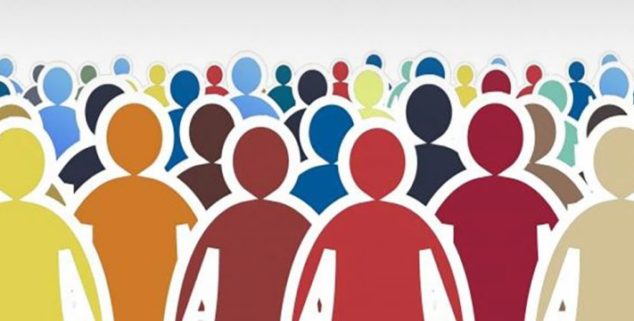News
Making history: Our first online census
 An illustration of the 2020 census in California. (Image: census.ca.gov)
An illustration of the 2020 census in California. (Image: census.ca.gov)Editor’s Note: This is the second in a Capitol Weekly series on the 2020 census.
Most of us are already doing a lot of business online, from ordering products to banking to even filing our taxes. Now we will be asked to do one more task over the Internet — fill out a U.S. census survey.
The next census, the all-important survey conducted every 10 years and next scheduled in April 2020, will be the first to be conducted largely online. People who choose not to will be able to respond over the phone or by mail.
The goal of conducting online is to save money and increase participation. These days people are increasingly reluctant to answer surveys and the cost of collecting their data is rising. The Census Bureau estimated that moving the survey online will save an estimated $5.2 billion compared with the 2010 census survey methods. Every person who fills out the survey online eliminates the need for a census worker to contact them and follow up on the phone or in person.
People will be able to respond from any device any time anywhere- that could mean using a cell phone while waiting for the bus or typing on an iPad while watching TV. Those without access to the Internet at home will be encouraged to use free service at public libraries.
While some are concerned about the possibility for data breaches, census officials say they are taking special care to make sure personal data is protected.
“Our mission here is to provide quality statistical information on America’s population,” said Peter Griffith, a Census spokesman based out of L.A. “We rely on the participation of every person. Our goal and legal duty are to protect every piece of information they provide.”
Data collected from the census is used to determine things like the number of Congressional representatives and federal allocations for education, healthcare and infrastructure each state gets.
Beginning in March, every household will receive a letter instructing how to participate in the census, Griffith said. The letter will give a unique ID that people can use to participate online if they choose.
Doug Pollack, chief marketing officer for ID Experts, a company that helps people protect their online data, said he believes the government is doing as good a job as possible to build a secure system and create a way that people can respond securely.
“The odds of it getting done securely and accurately are better if you get it done online,” he said.
So how do people know if the census letter they get is legitimate? Pollack advises people to go to the website listed in the letter and make sure it’s a real government site. Also, they should read the letter they get carefully.“The hard part is following directions,” he said. “We’re not good at it.”
The statistics for California indicate that access to the Internet should not be a problem for most residents. According to a March report by the Public Policy Institute of California, Internet usage and broadband access are at all-time highs in the state. In 2017, 90 percent of California households used the Internet and 74 percent had home broadband subscriptions – up from 82 percent and 70 percent respectively in 2013. Moreover, 73 percent of households in 2017 used the Internet over a cell phone.
However, certain groups have less access to the Internet, including low-income, less educated, rural, African-American and Latino households. Still in 2017, between 54 and 67 percent of those households had broadband Internet subscriptions, the report said. And many of those without home subscriptions used the Internet over their cell phones.
Still, the same report indicates that many Californians are concerned about loss of privacy over the Internet. Fifty-nine percent of California households in 2017 said identity theft was their greatest concern. Other concerns included loss of control over personal data (22 percent) and data tracking by government (18 percent).
An October press release from the Census Bureau said the organization has designed its system “with layered defense to protect our networks from external threats.” It gave the analogy of an apartment building that has a secure entry system at the main door with deadbolt locks on the door, motion detectors in the hallway and alarms on the windows.
Griffith, the census spokesman, added that access to the information collected by the census will be limited only to authorized users at the agency for authorized statistical purposes. The Census Bureau follows strict IT security standards for encrypting the information of respondents that were set by the National Institute of Standards and Technology.
“We take the security and privacy of every respondent seriously,” he said. “We have a very robust program to protect that info.”
—
Editor’s Note: Clarifies security issues in penultimate graf; subs word “protect” for “collect” in final graf.
Want to see more stories like this? Sign up for The Roundup, the free daily newsletter about California politics from the editors of Capitol Weekly. Stay up to date on the news you need to know.
Sign up below, then look for a confirmation email in your inbox.

Leave a Reply